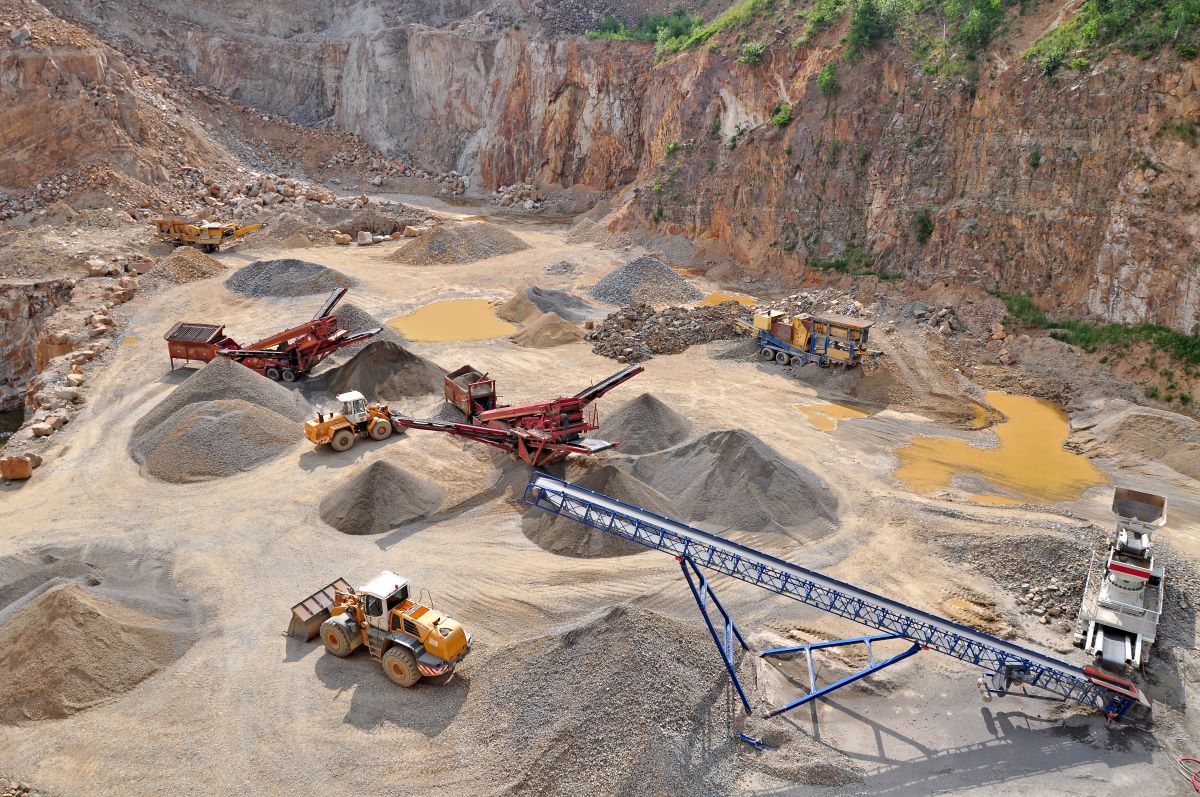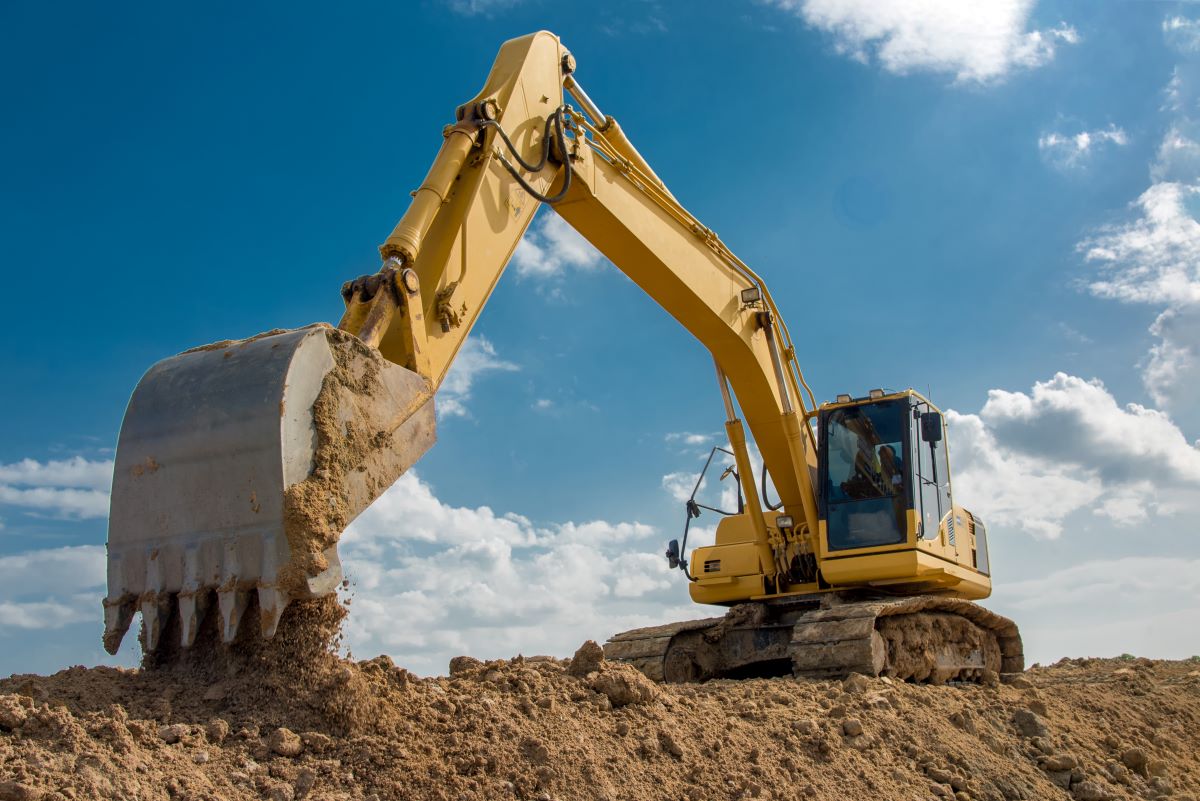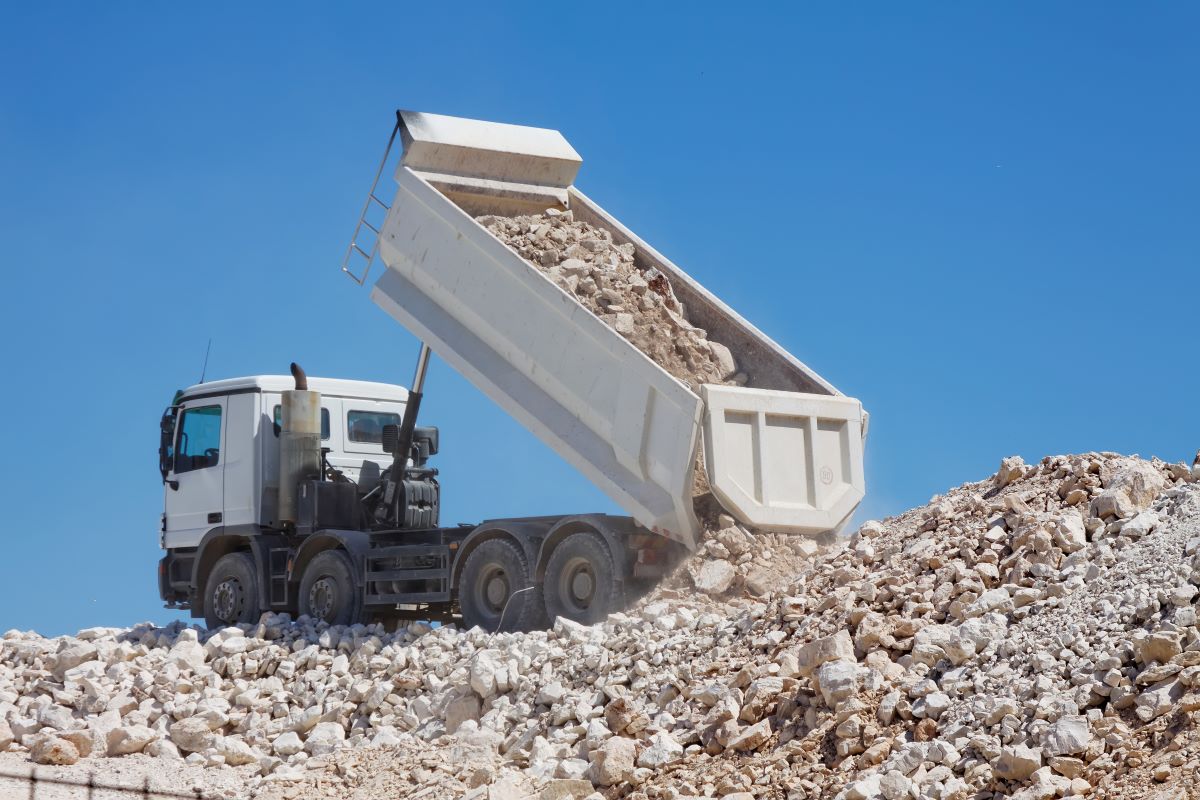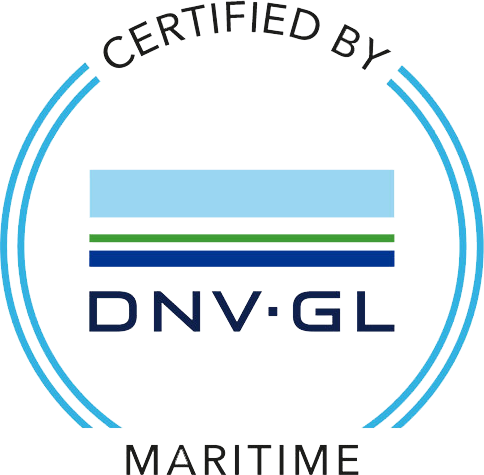The different hydraulic systems in a quarry plant
If you take a look at any quarry plant, you’ll see hydraulics all around you. Many of the tasks involved in quarry operations rely heavily on hydraulic equipment to ensure that projects run smoothly and efficiently.
As we recently covered the everyday applications of hydraulics, we wanted to delve deeper into the more industrial uses of hydraulic equipment and explain why sectors such as quarrying depend so heavily on this technology.
Why quarry plants need hydraulics
First and foremost, it’s important that we cover why hydraulic technology is so critical to the quarry industry.
It’s been widely reported that quarrying is one of the most dangerous industries to work in. Quarry plant workers are exposed to many health and safety hazards, due to the risks posed by the process of excavating and processing hard materials. However, quarrying is still very much required in order to remove natural materials from the earth for reuse in construction projects.
It goes without saying that this process needs to be as safe and efficient as possible, which is where hydraulics come in. Hydraulic quarrying equipment is designed to be robust and durable, able to carry out heavy-duty tasks with complete accuracy and high standards of safety.
There is no other technology comparable with hydraulics when it comes to lifting and moving heavy loads with such force and accuracy, in a way that’s safe and easy for the user to operate. The hydraulic machines and vehicles used in quarry plants are designed specifically to fulfil certain roles and perform in these harsh environments.

Different types of hydraulic quarrying equipment
There are many different hydraulic applications that can be found in a quarry plant, which span both equipment and vehicles.
Excavators
Excavators are responsible for digging holes, trenches and foundations – hence also being known as ‘diggers’.
They are able to make large channels in the ground and remove the material from that area, which is vital to the process of quarrying. Excavators are also capable of performing other functions such as lifting and placing heavy objects.
Excavators are powered by hydraulics in a number of different ways. Firstly, they move on tracks which are controlled by hydraulic motors to provide the driving force and ensure the alignment of the track. The bucket and arm of an excavator are also powered by a hydraulic circuit, controlled with joysticks and pedals inside of the cab to lower and lift the components when digging or removing materials.

Bulldozers
Bulldozers are a similar type of heavy-duty quarrying equipment, typically used to push large loads of materials and remove them from the area to clear a path and level the land.
The steering and braking system of a bulldozer is powered by hydraulics which provides enough force to generate the power needed to operate the machine. The bulldozer’s blade is also fitted with hydraulic cylinders to provide a greater deal of precision to its operation, ensuring that it’s moving the correct load to the desired location.
Wheel loaders
When the material has been cleared by a bulldozer, it’s then the responsibility of wheel loaders to remove this waste and pave the way for other quarrying processes to take place without delay or obstruction.
The equipment can collect almost any type of material including debris, soil and gravel, and will typically load it into a truck ready for transportation away from the site.
Wheel loaders operate a hydraulic arm with an attached bucket/scoop. The arm is controlled by hydraulics which lifts, lowers and tilts the bucket to allow for the collection of materials. The bucket uses a bell crank to open and close when picking up or releasing the material.
Tipper trucks
On a quarry plant, tipper trucks will be used to transport materials – such as that dispensed by a wheel loader – around the plant to designated locations to be used, or off-site to be disposed of.
Tipper trucks can carry an immense amount of load (above 3500 tons) and for this reason, are powered by hydraulic systems to provide the support and power needed to lift and move heavy loads.

Crushing equipment
In quarrying, certain types of materials and rocks must be crushed before they can be transported for reuse. This is where heavy-duty crushing equipment comes in.
Crushing equipment applies a huge amount of pressure to rocks in order to crush them into smaller sized rocks which are more compact and easier to transport. This level of pressure can only be generated with the hydraulic force that powers machines comprising vices, metal sheets and vibration equipment.
The rock is delivered to the hydraulic crushing machine via a conveyor belt, and the equipment can then accurately break down the material to the correct specified size or weight before it can then be transported.
Stripping and drilling equipment
Whilst bulldozers are typically used in quarrying for large-scale ground surface stripping, the process also uses blasting to create easy access to the needed materials.
Through this process, specialist hydraulic-powered drilling equipment is used to drill holes into the ground, before explosives are placed into these holes in order to move a large portion of the ground to expose it for quarrying.
Off-highway trucks
Off-highway trucks are essential to the operations of quarrying. They are essentially huge heavy-duty trucks that are capable of moving extremely heavy loads (as much as 3600 ton) whether it’s overburden or extracted material.
These trucks are powered by hydraulics to lift and move the haul, along with hydraulic steering and braking systems for accurate transportation. Off-highway trucks help to improve the efficiency and productivity of the entire quarrying operation, as seamless transportation of huge loads is critical to getting the job done.

Hydraulic services for quarrying equipment
Reliable and robust quarrying equipment is crucial to the operations of any quarry plant. This starts with the design and build of the equipment, and continues with regular maintenance and quick repairs where needed.
If you’re looking for a hydraulic partner for your quarrying equipment, Derek Lane & Co can help. Over the years, we have built up long and successful relationships with quarries and quarry equipment users across the UK. We can design complete bespoke hydraulic systems to meet the specifications of any quarrying application and offer maintenance, repair and replacement services for small and large-scale equipment.
We’re based in Newton Abbot, Devon and can cater to your hydraulic quarrying needs no matter where you are in the UK. If you’re looking for a reliable hydraulics specialist to help improve the working life and sustainability of your quarrying equipment, get in touch with us.










